How does makeup affect your skin? – 11 Reasons why makeup can be your enemy

Make-up is powerful. It has the power to make a woman feel like a million dollars when her skin does not want to co-operate. It’s value, however, is not just limited to beautification- it also allows a woman to express herself by using her own body as a canvas.
The history of cosmetics in the world stretches back to several hundreds of years ago and has clearly made a permanent space for itself in our day-to-lives. Just flip through the pages of a glossy beauty magazine and that’s all the proof anybody needs.
Beautifully pouted lips in shades of reds and pinks, complemented by a touch of rouge blossoming from the apples of the cheeks, some playful color flirting with your over luscious thick mascaraed lashes- make-up truly is an expression of art to the cosmetics lover.
Cosmetics have evolved over the years from natural sources such as pigmented berries and ash to more precisely formulated chemical compositions that are easy to use and give a more intense effect than naturally-found compounds. The sheer variety that such experimentation has given to the world of make-up is astounding. There are an innumerable range of brands spanning cosmetics in all shades of colors and textures.
Such creative liberty sadly however also comes with its downsides. In order to give their consumers such a wide range of products to choose from, there are a lot of undesirable ingredients that go into the making of a make-up formula. A lot of times the usage of these cosmetics give their wearers a superficial and temporary high, over the years affecting the skin such that the usage of cosmetics in order to cover up the damage done becomes all the more important.
It is crucial to understand the many ways in which make-up can affect the skin before taking the step to make it a part of your lifestyle. The extent of damage could vary from something mild like a pimple or a headache to something as life threatening as cancer.
How does makeup affect your skin?
1. It Could Stir Up Allergies

Have you heard of formaldehyde? If not, it is something that you will find in a nearby mortuary- and also in some of your make-up. Formaldehyde is a compound that is used to preserve dead bodies. This compound also has the capacity to irritate the skin when applied in the form of make-up.
Parabens and salicylates are two ingredients that feature on make-up products quite often, each with their own unique way of wreaking havoc on your skin and overall health. Parabens could be connected to increased chances of developing cancer at worst, and could also lead to an outbreak of irritated skin, discoloration or unsightly dark patches.
Parabens cannot be removed from makeup formulas as it is this compound that helps keep your makeup fresh even after being sat unused on a counter for a long time. Salicylates are an even more prominent feature of cosmetic items. That is horrifying because salicylates can result in intolerably itchy skin or even hives or rashes.
This is definitely not an outcome that any makeup enthusiast would be ready to accept in exchange for the opportunity to showcase clear skin at a superficial level! If all of this is not enough, some perfumes cause what is known as “photosensitization”- which results in sensitive, patchy skin.
2. Oiliness or dryness
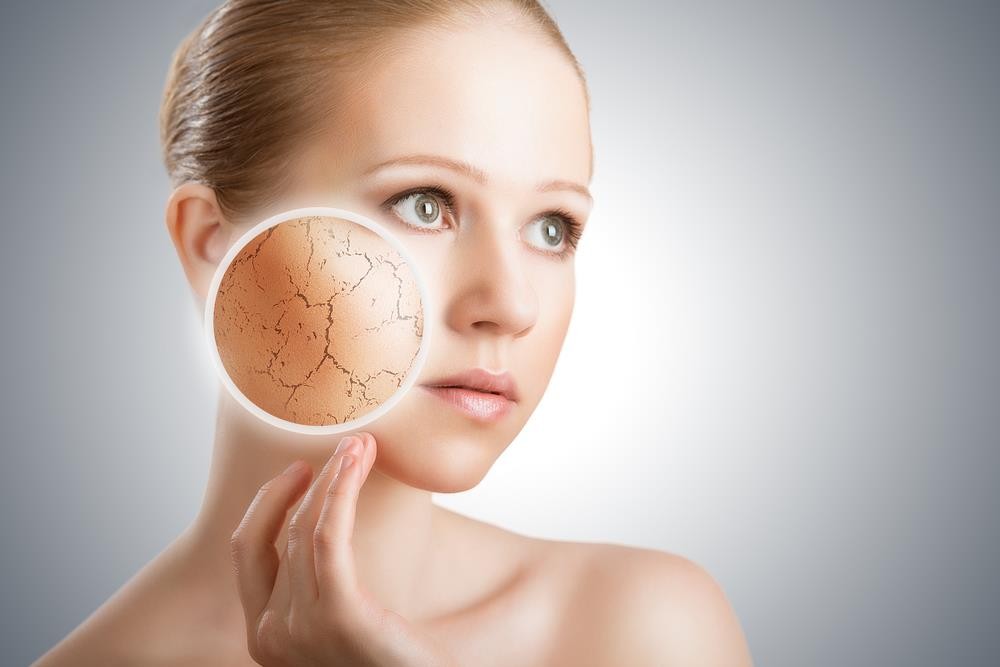
The effects of makeup on the skin in terms of oiliness or dryness differs depending on the type of skin a person has, the ingredients in the makeup product, and how the two react with each other.
Essentially make-up sits on the top layer of your skin and creates a barrier between the pores of your skin and the air around you- kept on for prolonged periods of time, the chemical compounds in your makeup enter your pores and begin to suffocate your cells.
This results in reactions that are exactly as bad as one would imagine. Painful outbreaks that take days to clear. The naturally produced oils on the skin react with makeup and dead skin cells and thus painful pimples are formed.
Repeated blockages in the skin over time have the potential to cause permanent skin damage and discoloration unless you’re extremely genetically blessed with clear skin. For some people on the other hand, the usage of products like foundation, BB creams, powders and more suck the moisture out of the skin and leave behind very dry flaky patches of skin behind. This can also ultimately lead to breakouts and itchy skin.
3. Clogged pores and acne
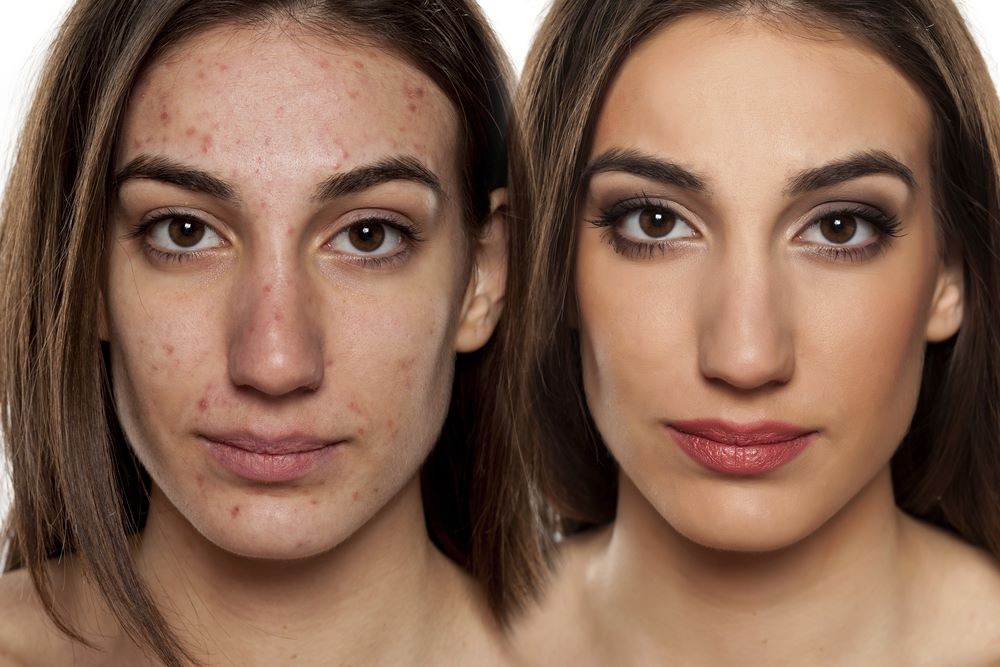
Makeup is chock full of chemicals that your skin has no idea how to deal with. If allergies are the number one problem faced by people because of make-up, clogged pores and resulting painful acne is a close second. Products that are petroleum based, for example, bar the skin from getting rid of excess oils, sebum and dead skin cells.
Introduce the right mix of bacteria into this equation, and you have an acne breakout to deal with on your hands- which is probably what you wanted to hide in the first place. ‘Non-comedogenic’ products were introduced for this reason- these products use ingredients in their chemical formulas that cause the least amount of blockage to your pores and allows them to breathe freely.
The occasional pimple or acne breakout is completely normal, it only becomes a cause of concern when there are frequent occurrences of such painful breakouts that take a long time to clear up. Hormonal imbalances could also be a causal factor behind sudden unexpected breakouts. In what may come as a shock to some, cosmetic products have also found to be responsible for causing hormonal imbalances.
In order to understand whether cosmetics are behind the cause of acne breakouts, you could try observing shifts in hormonal levels with the help of a trained physician while using makeup and after quitting for a while.
4. It could discolor your skin
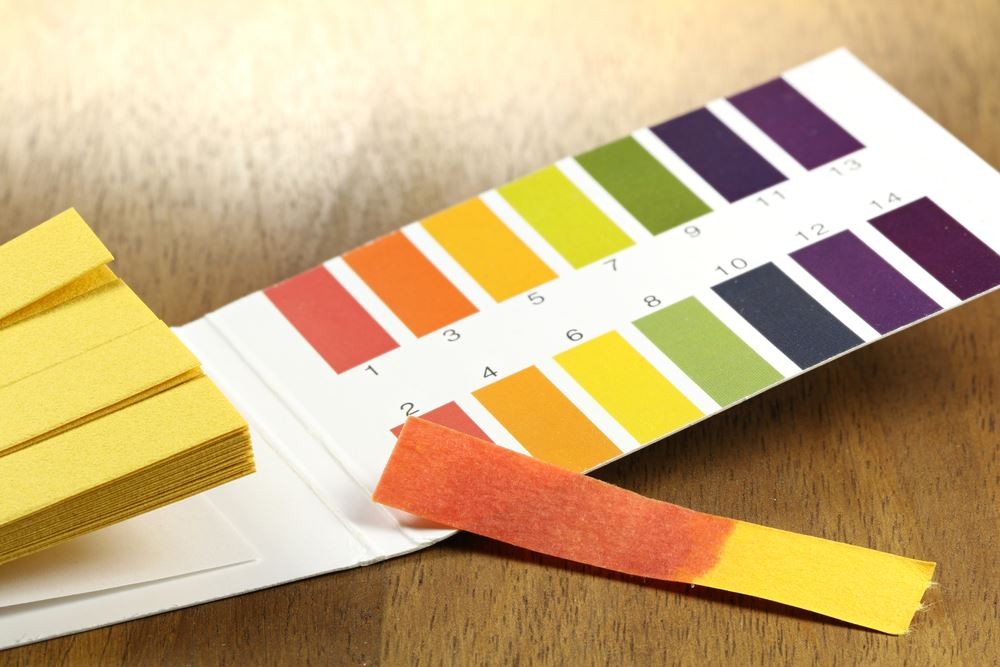
Truly good quality makeup that does not harm the skin at all comes at a hefty price that is out of the reach of the average middle-class consumer. Unfortunately cheaper products are also made up of cheaper ingredients that work perfectly well in providing display value to your face but really do a number on it in terms of skin quality.
Bleaching or darkening of the skin is a common side-effect of using lower quality goods. The pigments in the makeup may sometimes seep into the skin and refuse to budge, leading to the creation of strangely colored blotches on the face or spots that seem to have settled down for a while.
Discoloration is a sign of damage to natural skin pigments and could also be the result of dryness or infection. Notice how most beauty gurus often have patchy and unclear skin when it is not covered by makeup.
Not giving your skin the space to breath makes it difficult for the skin cells to clear waste and absorb vitamins and minerals. Skin discoloration could also be the side-effect or the symptom of a much deeper and serious problem such as cancer, therefore this is one sign on the body that a makeup user must most certainly not ignore.
5. It could lead to skin disorders
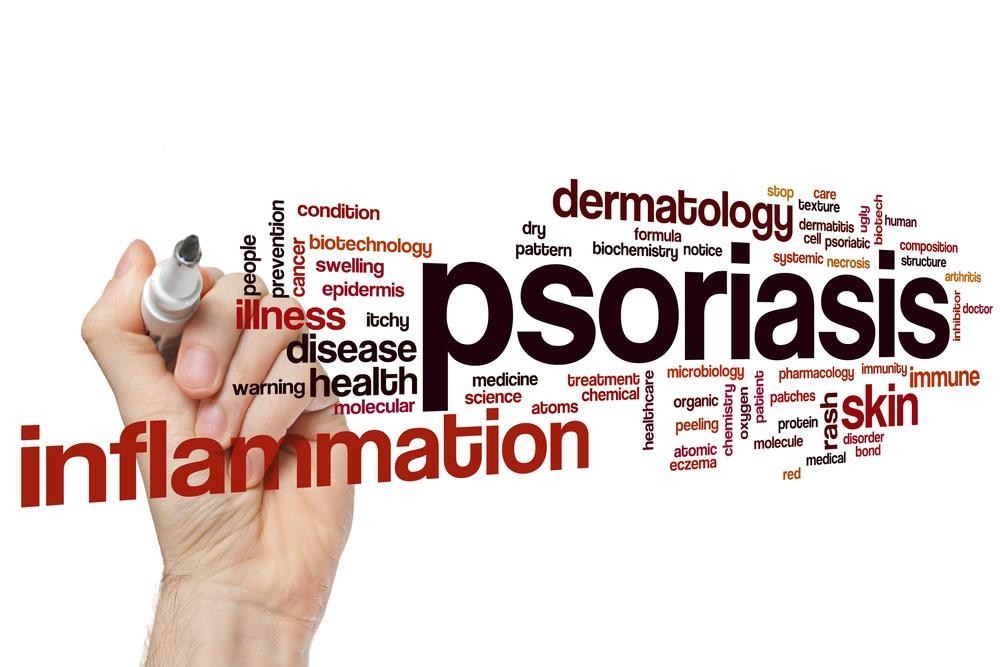
Oil in products clog the skin, salicylates and sodium laurel sulphates irritate the skin to no end, damaging the skin, causing itching and opening the skin up, making it more vulnerable to atmosphere irritants and infections. An overdose of the chemicals found in makeup can lead to thinning of the skin and an increased sensitivity to the elements.
Brands are beginning to market ammonia-free products since it has become a well-known fact that ammonia damages the hair follicles and the skin around it to greater extents than anyone wants to deal with-sadly sometimes the products that give our body a break are also out of the reach of our budgets and therefore we settle for inferior products.
This is one of the worst things to do. What starts out at a slight discoloration or a small blemish could eventually result in irreversible skin disorders such as irritant contact dermatitis, allergic contact dermatitis or premature aging.
Skin disorders have the potential to take healthy and beautiful skin and scar it for a lifetime. Once a skin disorder has made its way into the skin, it does not leave without taking away some skin health with it, making your skin more susceptible to infections in the future.
6. The Big C- It could cause Cancer
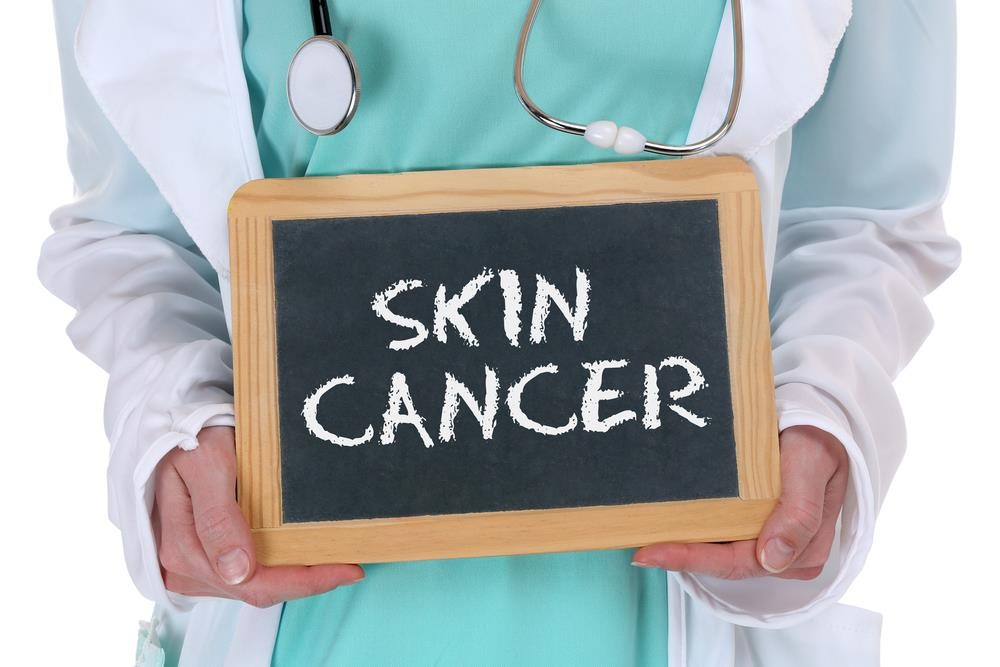
Probably one of the worst side-effects of using makeup and something that none of us have ever considered while buying or applying our makeup is the prospect of developing cancer. We all know by now that synthetic chemicals are used to develop makeup products. The same synthetic chemicals that are used to develop cleaning agents for industrial equipment.
Nobody wants that on their body! Regulation of what goes into the stuff you apply on your body is alarmingly lax. Parabens, lead, formaldehyde, triclosan and toluene are some names of the toxins that are absorbed into the bloodstream via shampoos, conditioners, creams and sprays. You name it and it probably has a potential cancer causing compound in it.
A study found that those women with breast cancer were found to have elevated levels of parabens in the tumours. Lead is a popular ingredient found in almost all lipsticks regardless of brand and the ill effects of lead concentration in the bloodstream are well known.
Formaldehyde is an internationally classified carcinogen that has a presence in most hair-care products. The only way to avoid being exposed to these harmful chemicals is to opt for organic products. Unfortunately the downside to this alternative is that organic products do not last as long as the regular stuff and sometimes even these have carcinogenic compounds added to them.
7. It could cause depression

One consequence that nobody ever imagines could occur because of makeup overuse, is depression. Studies find that there exists a connection between makeup usage and mood disorders such as depression. The reason behind this is that harmful chemicals in makeup products cause hormonal imbalances which in turn lead to rapid mood swings, difficulty in concentration and irritability.
The fact that chemicals present in the products one applies to the body enter the bloodstream and have great potential to damage the body from the inside is lost to many when the temporary benefits of using cosmetics is made out to be so superior all around the world.
Depression is more than just a psychological problem- when there is a shift in optimal hormone production levels, especially when the body is unable to release the ‘happiness’ hormones, depression goes from the arena of psychology into the arena of psychiatry and more chemical compounds in the form of medicines are introduced into the body to combat it.
It is a fallacy that mood swings are caused only when a woman is PMS-ing. In fact these toxic compounds in makeup create the same hormonal disturbance that occurs in a woman’s body around that time of the month. Observe if your temperament improves a few days after steering clear from makeup. If it does, you’ve found the culprit behind your sudden blue mood!
8. It could aggravate the eyes
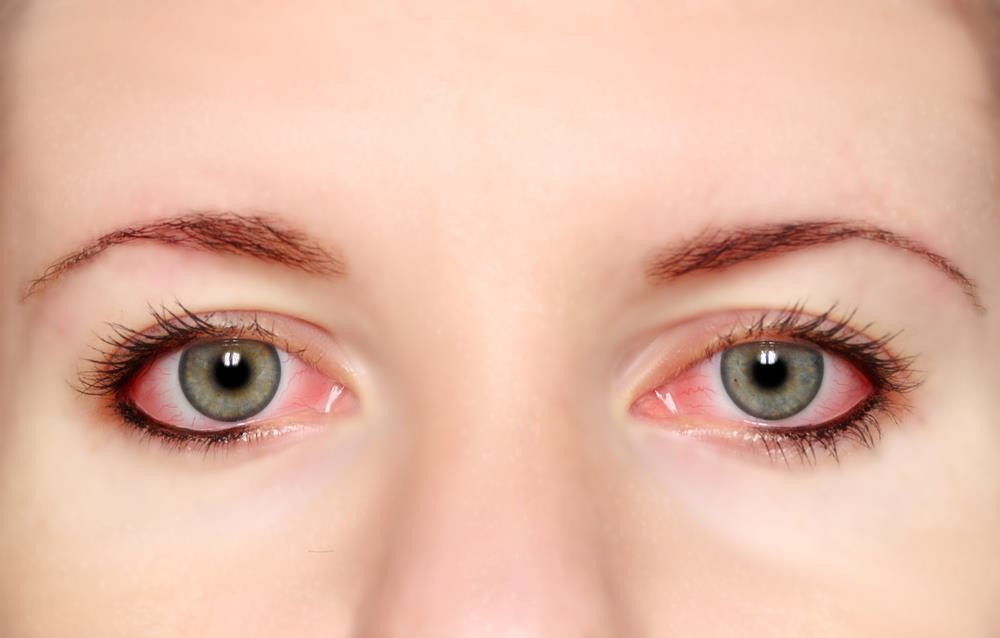
Since most makeup is used over a period of time with several applications, the chances that your makeup products are also host to bacteria strains is highly likely. Each time the finger is introduced into a bottle of cream, all the bacteria on the finger is deposited into the product from where it has nowhere to go.
Imagine the number of times you swiped eyeshadow or foundation onto your finger without thinking about you were doing with your hands before applying makeup. A quick analysis of the product under a microscope will reveal to you exactly why your skin has been breaking out so often or where that infection came from.
The eye is a sensitive area that has to shield itself from bacteria every time some eyeshadow or a mascara laden eyelash falls into the eyeball. Quite often, unclean brushes are used again and again to apply eye makeup that also repeatedly bring bacteria into contact with the eye, causing irritation and infections.
Tired looking eyes, red, itchy and irritated eyes are symptoms of an eye infection that has been caused or aggravated by the usage of makeup around and on the eyes. Lens wearers beware- the risk of developing infections is twice as high for you and potentially more dangerous.
9. It could affect your lungs

There are two ways that makeup can adversely affect the lungs- one is when they directly enter the lung every time you inhale some of it inside and another is when harmful chemicals enter the bloodstream and destroy the lungs.
Allergies are one way in which makeup can start to affect your lungs. The next time you start sneezing uncontrollable or develop a runny nose and show infection-like symptoms, don’t blame it on the dust. Dig in a little deeper and find out what is really causing your chest congestions. The answer could be hidden in your lipstick!
Salicylates and lead can cause asthma-like symptoms that could become irreversible over a period of time. The most innocent-seeming problems could find their root cause in the ingredients of the products of your make-up shelf. If you find yourself afflicted with the same kinds of problems as the one mentioned in this article, don’t shrug it off this time. Stop using makeup for a while and observe changes in health.
10. It could damage your thyroid gland
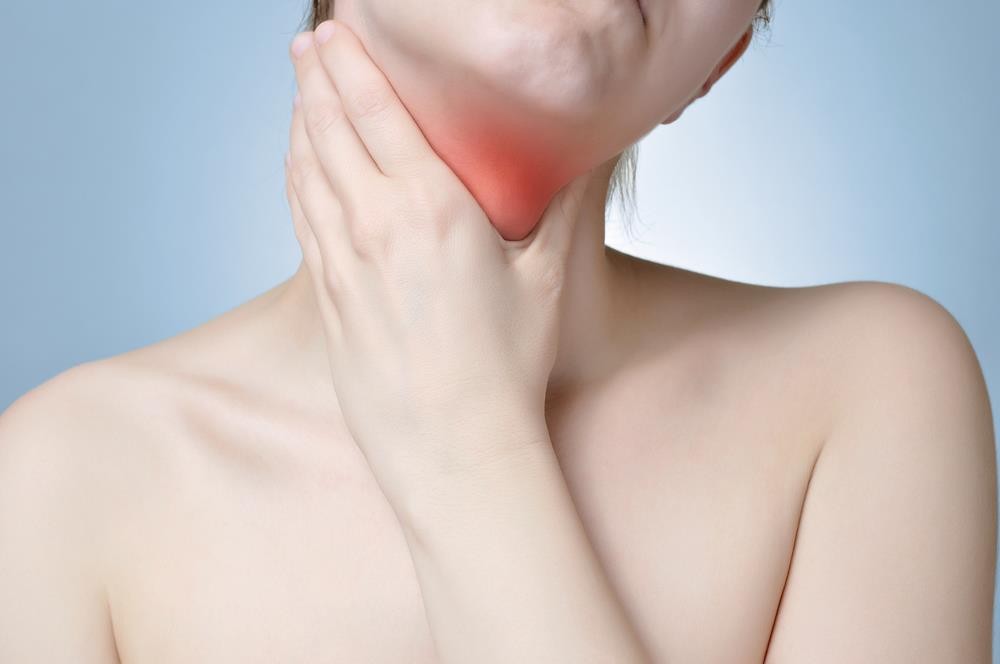
The effect of some kinds of makeup on the functioning of the thyroid is one example of the ways in which makeup creates hormonal imbalances in the system. Triclosan is an ingredient found in makeup that messes with the thyroid hormone and leads to symptoms such as depression, unexpected weight gain, mood swings, sweatiness among others.
Since the organs in the body are all interconnected to each other and depend on each other for proper functioning, damage to one also damages the other. Reproductive system damage is another one of the disastrous outcomes of using too much makeup.
A link has been found between the usage of products with parabens in it and damage to the DNA in sperm. Infertility is the worst outcome that could occur as a result of frequent or everyday use of makeup. Imagine having to give up on the chance of becoming a parent in order to steal a few minutes of the spotlight-or even worse, imagine your use of makeup showing adverse reactions in your baby!
Anyone with hyperthyroid or hypothyroid issues knows that once your thyroid gland has given up on you, a host of problems begin to affect the body that require lifelong medication and control of diet in severe cases.
Instead of putting yourself through unnecessary trauma, the logical step would be to watch what you’re allowing access into your body and consider the long-term consequences of your decisions.
11. It could give you chronic headaches

Yes, headaches. Possibly one of the most cleverly disguised symptoms of using too much makeup, headaches are a common problem faced by frequent makeup users.When your skin starts to feel dry and tired after sitting in makeup all day, its is a warning sign that it has tolerated more than it should have to handle.
Perfume compounds in your makeup could be triggering allergies that give you those shooting migraines. It isn’t just the sun that makes your head feel like it is being shattered into a million pieces, it could also be your makeup.
Using fragrance-free products will help reduce headaches but it does not stop other harmful chemicals from seeping into your bloodstream and wreaking havoc on your body from the inside.
Conclusion
Makeup is a delightful addition upon a person’s dressing table. Many a woman find that applying makeup goes far beyond beautification and that the process offers therapeutic relief and the feeling of being prepared to go out and face the world regardless of how much it helps in enhancing aesthetic appeal.
It can be difficult to let go of your favorite products and stop yourself from applying that beautiful red shade of lipstick that makes you feel like you can conquer the world, but you needn’t forego using makeup products altogether.
Companies that take into consideration the long-term effects of using makeup do exist that create products that do not harm the body and yet give the desired effects. Armed with a little knowledge of the different kinds of harmful compounds that go into the making of cosmetics, you could walk into a nearby cosmetics store and scrutinize all the ingredients of a product before making smart decisions that you know will not affect your health.
A major lifestyle change would be to forego using makeup altogether except perhaps the bare minimum- this will save your health in the long-term and also give you a feeling of liberty that is addictive!
How has makeup affected your skin in the past? Let us know in the comments below
Do you want more traffic?
Hey, I’m Neil Patel. I’m determined to make a business grow. My only question is, will it be yours?
